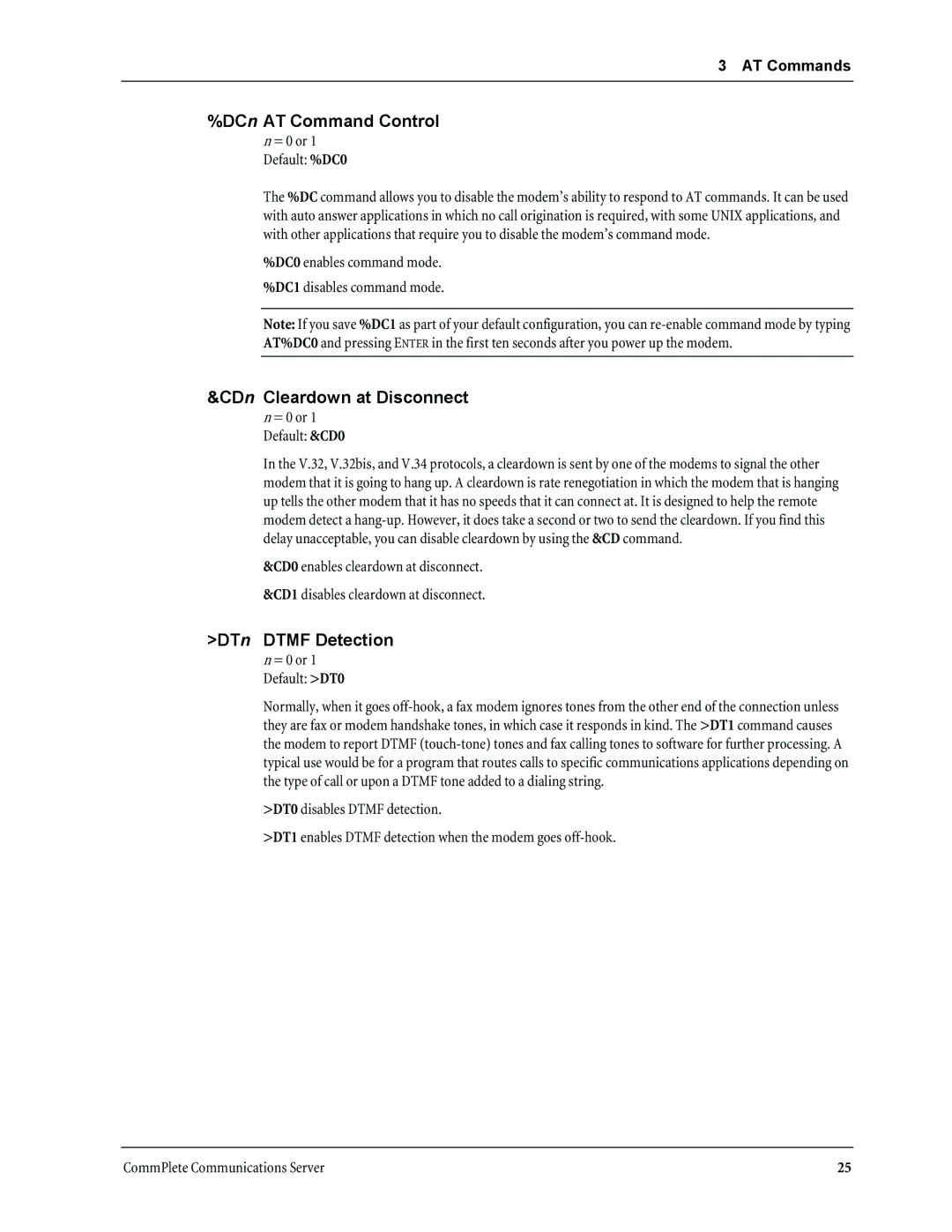
3 AT Commands
%DCn AT Command Control
n = 0 or 1 Default: %DC0
The %DC command allows you to disable the modem’s ability to respond to AT commands. It can be used with auto answer applications in which no call origination is required, with some UNIX applications, and with other applications that require you to disable the modem’s command mode.
%DC0 enables command mode.
%DC1 disables command mode.
Note: If you save %DC1 as part of your default configuration, you can
&CDn Cleardown at Disconnect
n = 0 or 1 Default: &CD0
In the V.32, V.32bis, and V.34 protocols, a cleardown is sent by one of the modems to signal the other modem that it is going to hang up. A cleardown is rate renegotiation in which the modem that is hanging up tells the other modem that it has no speeds that it can connect at. It is designed to help the remote modem detect a
&CD0 enables cleardown at disconnect.
&CD1 disables cleardown at disconnect.
>DTn DTMF Detection
n = 0 or 1 Default: >DT0
Normally, when it goes
>DT0 disables DTMF detection.
>DT1 enables DTMF detection when the modem goes
CommPlete Communications Server | 25 |
